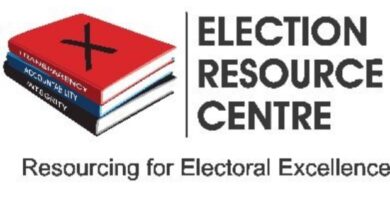AG’s report uncovers mismanagement in local authorities

Duduzile Nyathi
The 2023 Auditor General’s report has uncovered extensive corruption, financial mismanagement, and governance failures within several local authorities in Matabeleland North, Matabeleland South, and Bulawayo, raising serious concerns about the misuse of public funds and the impact on service delivery.
The report highlights significant financial discrepancies and mismanagement in the Hwange Local Board. “Funds intended for community projects were misused, with substantial amounts being spent without proper documentation or approval,” the report states. This lack of accountability has hindered the completion of vital development projects, leaving communities without essential services
In Lupane, the local board was found to have similarly mismanaged allocated funds. “Payments were made in full for projects that remain incomplete, highlighting severe inefficiencies,” the Auditor General noted. This situation underscores the urgent need for better financial controls and transparency to prevent such occurrences in the future.
Gwanda Municipality was highlighted for its misuse of devolution funds, which are intended for infrastructure development. “Instead of being used for their designated purpose, these funds were diverted to cover administrative costs and salaries,” the report revealed. The municipality also faced criticism for its procurement processes, including instances of overpricing and the lack of competitive bidding, severely impacting its ability to deliver services effectively.
The Auditor General’s report on Beitbridge Town Council revealed severe financial irregularities, including unauthorized payments and unaccounted expenditures. “The council was found to have poor financial management practices, such as failing to reconcile bank statements and maintain proper records,” the report stated. These issues have led to a significant loss of public funds and compromised the council’s ability to serve its community adequately.
The City of Bulawayo, Zimbabwe’s second-largest city, was not spared from scrutiny. The Auditor General’s report exposed several issues, including improper management of council properties and failures in revenue collection. “These failures have significantly reduced the funds available for essential services,” the report emphasized. Additionally, discrepancies in employee salaries and allowances were noted, with many payments not aligning with the approved salary structure, resulting in financial losses for the city.
These findings underscore the critical need for enhanced governance, stricter financial controls, and increased transparency across local authorities. The mismanagement and corruption detailed in the report not only undermine public trust but also impede the delivery of crucial services to the communities they are meant to serve.
However, the mismanagement of funds in Matabeleland local authorities mirrors the rot in local authorities all over the country.
A civil society organization, Urban Councils Association of Zimbabwe, has called for urgent reforms. “Implementing the Auditor General’s recommendations and enforcing accountability are vital to ensuring that public funds are used effectively,” they emphasized. Addressing these systemic issues is crucial to restoring public confidence and improving the quality of life for residents.




